Jodey Whiting: Court of Appeal grants new benefit death inquest
- Published
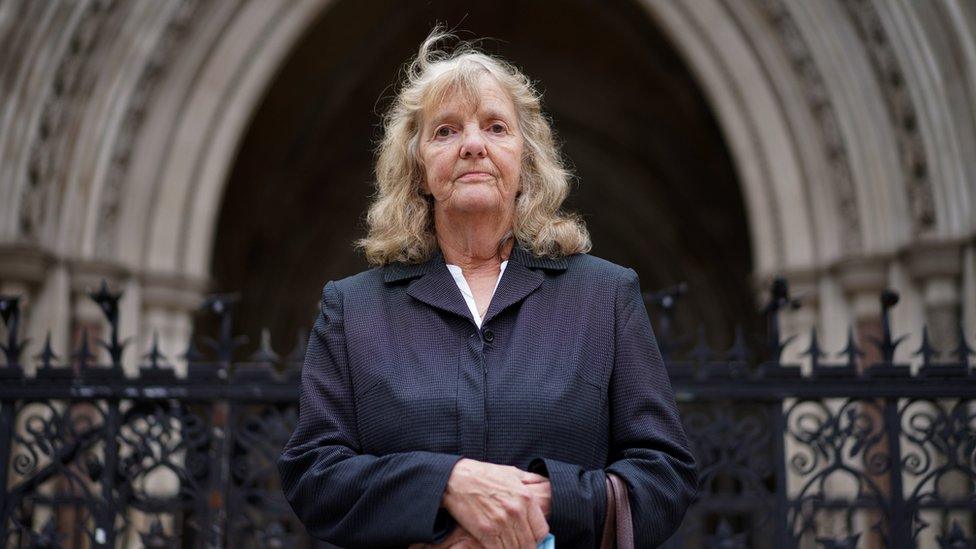
Joy Dove has campaigned for a fresh inquest into her daughter Jodey's death
The mother of a disabled woman who killed herself after her benefits were cut has won a legal battle for a new inquest into her daughter's death.
Jody Whiting, 42, from Stockton, died in February 2017 - days after her disability benefits were stopped by the Department for Work and Pensions (DWP).
A coroner ruled her death was suicide, but her mother, Joy Dove, wants a new inquest to look at the DWP's impact.
She said she was "over the moon" with the Court of Appeal decision.
Three judges have ruled that a new inquest should take place.
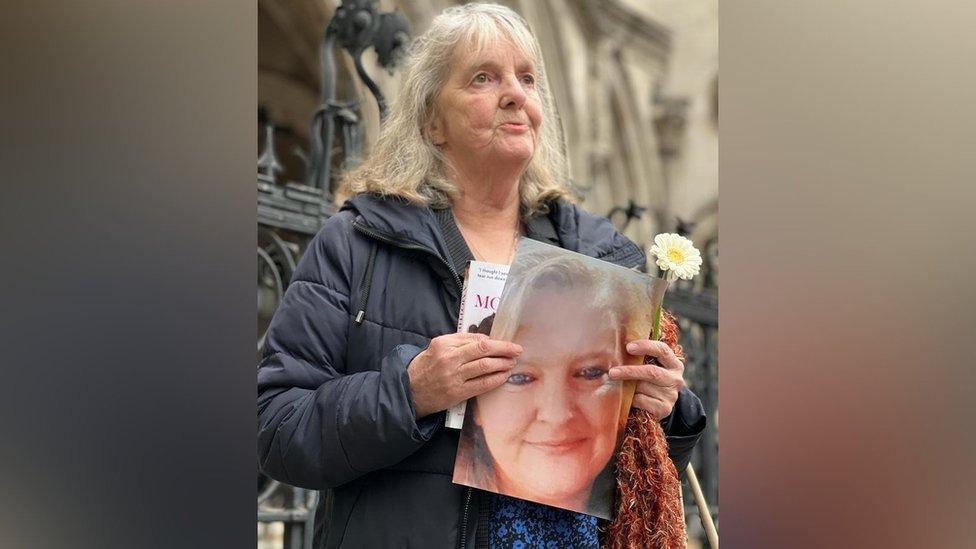
Joy Dove said she was pleased with the court's decision
In a statement Mr Dove said she was "so pleased and grateful" to the court.
"We buried Jodey just over six years ago and finally my family and I have the chance of getting justice for Jodey," she said.
Ms Dove had challenged a ruling by two High Court judges in June, who had refused her request for a new inquest.
She took her fight to the Court of Appeal, where judges heard her case in January and concluded one was "desirable in the interests of justice".
Lady Justice Whipple, sitting with Lord Justice Lewis and Lord Justice William Davis, said the public had a "legitimate interest" in knowing whether Ms Whiting's death was connected with the abrupt stopping of her benefits.
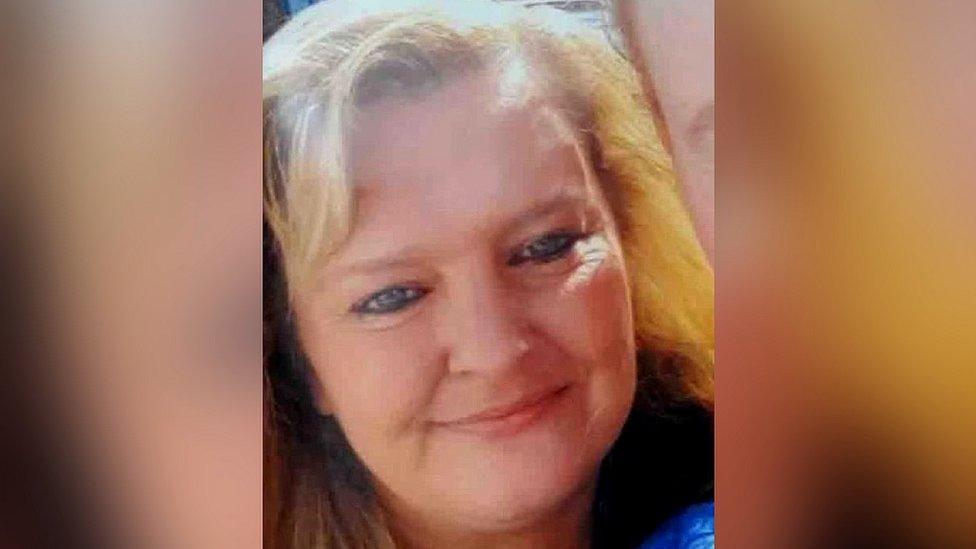
Jodey Whiting had a history of chronic pain and mental health issues which left her unfit to work
The coroner at the original inquest, which lasted 37 minutes, recorded a verdict of suicide.
During the Appeal Court hearing, Ms Dove's lawyers argued the original inquest had not investigated "whether any acts or omissions of the DWP caused or contributed to Ms Whiting's death".
They said there was fresh evidence of "multiple, significant failings" by the DWP which had not been considered.
Ms Dove said she had always believed "the DWP wrongly stopping Jodey's benefits" caused her death.
"This is a victory not just for us but for all those families and others still on the receiving end of awful treatment by the DWP," she said.
"I hope the DWP learn from their tragic failings."
Remedial steps
A government spokesperson said the DWP was "ready to assist the new coroner with their investigation" and could not comment on active legal proceedings.
In the ruling, Lady Justice Whipple said the public had a "legitimate interest" in knowing "if Jodey's death was connected with the abrupt cessation of benefits" by the DWP.
"The department deals with very many people who are vulnerable and dependent on benefits to survive," she said.
"The consequences of terminating benefit payments to such people should be examined in public."
The judge said it was also in the public interest that the coroner be given the opportunity to consider whether a prevention of future deaths report was warranted.
They may wish to hear from the DWP at the second inquest about what remedial steps have already been taken, she added.
'Missed opportunities'
Ms Whiting had received benefits for more than a decade due to serious, long-term physical and mental health issues.
In late 2016, when the DWP started a reassessment, she said she needed a home visit because she was housebound, had severe anxiety and was unable to walk more than a few steps.
Ms Dove's lawyers argued at the High Court in 2021 that this request was not properly considered before the DWP terminated her disability benefit when she did not attend a work capability assessment.
This led to Ms Whiting's housing benefit and council tax benefit also being stopped.
The decision to terminate Ms Whiting's benefits was overturned on 31 March 2017, weeks after her death.
The independent case examiner, which investigates complaints about the DWP, later found multiple breaches of department policy, significant errors by staff and several "missed opportunities" for the DWP to reconsider the claim.

Inquest appeal timeline:
November 2020 - Office of the Attorney General grants permission for Ms Dove to apply to the High Court for a second inquest
June 2021 - High Court hearing takes place
September 2021 - High Court dismisses the application
October 2021 - Ms Dove applies to the High Court for permission to appeal but is refused
November 2021 - She then applies to the Court of Appeal for the same permission to appeal
October 2022 - Court of Appeal grants permission, meaning Ms Dove can challenge the September 2021 decision not to hold a second inquest
January 2023 - Court of Appeal hearing is held
March 2023 - Judges rule a second inquest should take place

Follow BBC North East & Cumbria on Twitter, external, Facebook, external and Instagram, external. Send your story ideas to northeastandcumbria@bbc.co.uk, external.
- Published1 February 2023

- Published31 January 2023

- Published5 October 2022
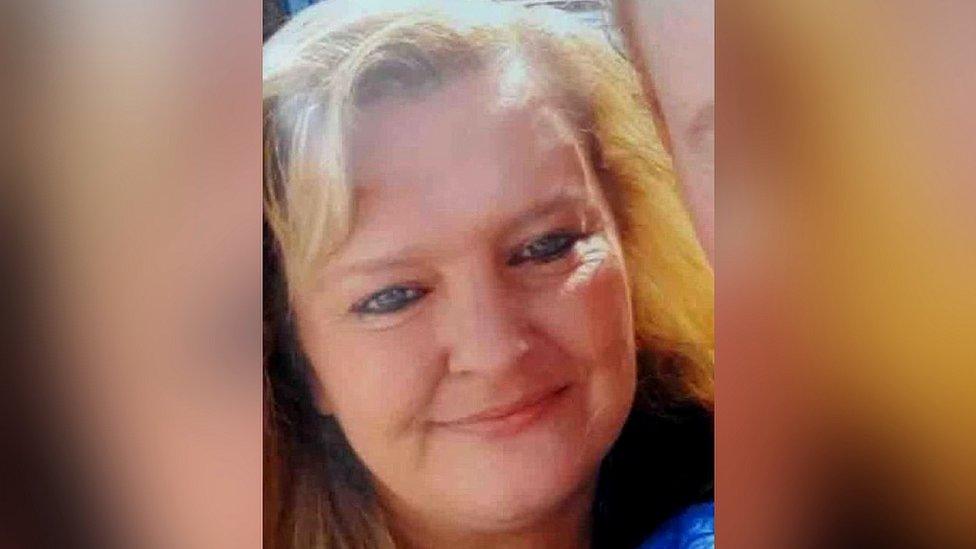
- Published3 November 2021

- Published1 October 2021
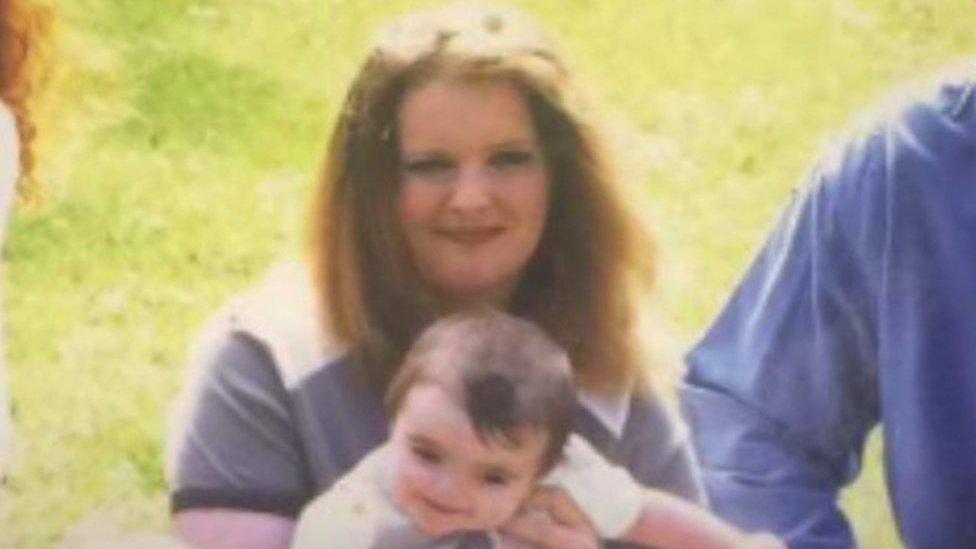
- Published17 September 2021

- Published22 June 2021
